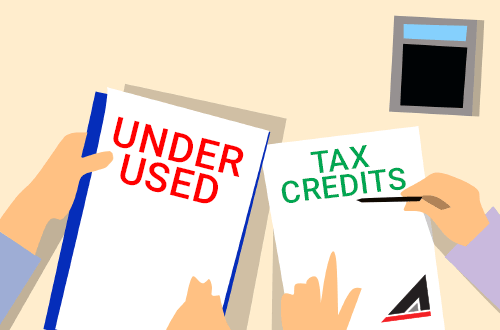
There are tax savings strategies like medical, donations and childcare that everyone tends to know about. But what about those tax deductions that are less common and very useful? Below are a few tax credits that you might find useful to keep in mind as you make your way through 2023!
1. Educator School Supply Tax Credit
If you were an eligible educator, you may be able to deduct $1,000 of the cost of eligible supplies you bought.
Do you Qualify?
You are considered an eligible educator if, at any time during the 2022 tax year, both of the following conditions are met:
- You were employed in Canada as a teacher or an early childhood educator at an elementary or secondary school, or a regulated child care facility
- You held a teaching certificate, licence, permit or diploma, or a certificate or diploma in early childhood education, which was valid and recognized in the province or territory in which you were employed
What supplies are eligible?
An eligible supplies expense is the amount that you paid in 2022 for teaching supplies that meet all of the following conditions:
- You bought the teaching supplies for teaching or facilitating students’ learning
- The teaching supplies were directly consumed or used in the performance of the duties of the eligible educator’s employment
- You were not entitled to a reimbursement, allowance, or any other form of assistance for the expense (unless the amount is included in the calculation of your income from any tax year and is not deductible in the calculation of your taxable income)
- The eligible teaching supplies expense was not deducted from any person’s income for any year or included in calculating a deduction from any person’s tax payable for any year
Examples include books, games, projectors, speakers, printers, and more.
2. Tradesperson Tax Credit
If you were employed as a tradesperson or apprentice, you may be able to deduct up to $500 of the cost of eligible tools you bought.
Do you Qualify?
You are considered an eligible tradesperson or apprentice if, at any time during the 2022 tax year you were employed in Canada as a one of Canada’s over 55 eligible trades or apprentice programs.
Your employer has to complete and sign Form T2200, Declaration of Conditions of Employment. Have your employer complete question 11 of Part B of the form to certify that the tools being claimed were bought and provided by you as a condition of your employment as a tradesperson.
What tools are eligible?
An eligible tool is a tool (including associated equipment such as a toolbox) that meets all of the following conditions:
- You bought it to use in your job as a tradesperson and it was not used for any purpose before you bought it
- Your employer certified it as being necessary for you to provide as a condition of, and for use in, your job as a tradesperson
- It is not an electronic communication device (like a cell phone) or electronic data processing equipment (unless the device or equipment can be used only for the purpose of measuring, locating, or calculating)
3. Manitoba Primary Caregiver Credit
Do you primarily take responsibility for the care of someone with a disability? Do you have a family member in an assisted living facility or care home? If you provide care to a person with cognitive, physical, or behavioural barriers without remuneration, you may be able to claim the primary caregiver credit.
This is a flat tax credit of $1,400 with no requirement to substantiate the number of days you were providing care for an individual. Many people know there is a claim available, but did you know that this claim extends to nieces, aunties and step-children? That’s right, the care recipient does not have to be your immediate family member to claim it.
Who is Eligible?
The care recipient must:
- Be a resident of Manitoba
- Reside in an area under the jurisdiction of a Regional Health Authority
- Reside in a private residence (e.g., not a group home, foster home, hospital, or personal care home, in supportive housing, or on a reserve)
- Assessed as having care level requirements equivalent to level 2 or higher (see Registration Form) and designate only one primary caregiver to claim this credit.
The primary caregiver must:
- Be a resident of Manitoba
- Provide caregiving for longer than 90 days
- Personally provide care or supervision to the care recipient without reward or compensation of any kind and
- Not be the spouse or common-law partner of a person who receives compensation or reward for providing care to a qualified care recipient.
What do you have to do?
1. Complete the registration form (click here) and send it to the Manitoba Tax Assistance Office.
Tip: if the care recipient qualifies for the disability tax credit, you may not need a doctor or nurse practitioner to complete page 3 of this form.
2. Claim it on your personal income tax return.
As you make your way through 2023, consider if you might be able to take advantage of these tax credits that are frequently underused. They could provide some extra tax relief for you or your friends and family.
If you would like to know more, please contact our office for trusted advice and personal service.
